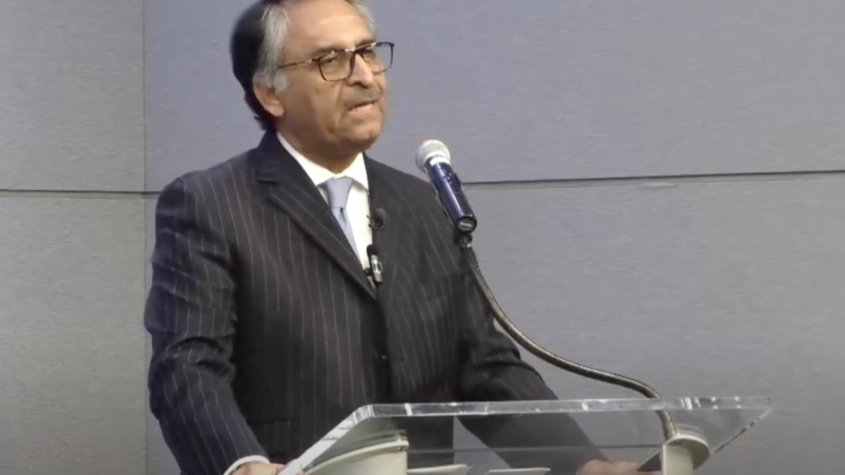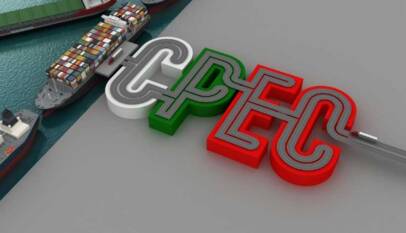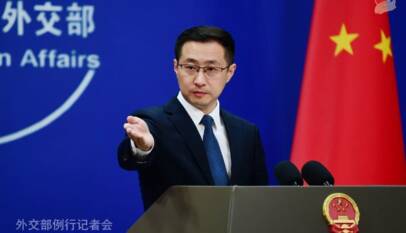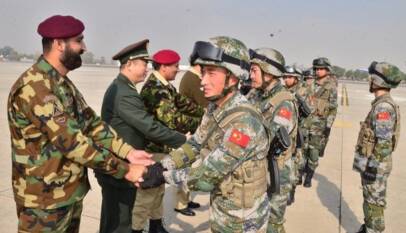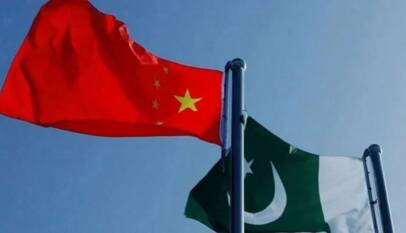CPEC is focusing on agriculture and railways in the next phase: Caretaker Foreign Minister
Caretaker Foreign Minister Jalil Abbas Jilani emphasized at a UN event that Pakistan’s relations with China, anchored in strong trade and economic ties, including the flagship China-Pakistan Economic Corridor (CPEC), are not a “zero-sum game” and do not come at the expense of relations with the US. He highlighted the importance of Pakistan’s historical ties with China as its largest trading partner and major investor. Jilani also underlined the de-hyphenation of Pakistan’s relationship with the US from other bilateral ties, emphasizing the potential for standalone bilateral relations. He discussed concerns about terrorism threats from Afghanistan, expressed a desire for peaceful ties with India, and addressed Pakistan’s commitment to addressing economic challenges and climate change.
Caretaker Foreign Minister Jalil Abbas Jilani said on Wednesday that Pakistan’s relations with China were neither a “zero-sum game” nor at the expense of its relations with any other country, including the “robust” ties with the United States.
Speaking at an event of the Asia Society on the sidelines of the United Nations General Assembly (UNGA) session in New York, Jilani stressed that the Pak-US relationship had been de-hyphenated from all other bilateral ties, and both sides were focused on “standalone” bilateral relations.
“We believe we can have close and cooperative relations with both the US and China,” Foreign Minister Jilani told the gathering, while dilating on Pakistan’s foreign policy and its quest for peace, stability, and shared prosperity.
“Having acted as a bridge between the two countries (China and the US) in the past, we remain convinced that stable and cooperative relationship between the US and China is instrumental for global growth, development, and security,” he said.
Jilani said Pakistan’s relations with China were historical and anchored in strong trade and economic ties, adding that China was Pakistan’s largest trading partner and a major investor, especially in infrastructure and energy sectors, and its flagship China-Pakistan Economic Corridor (CPEC).
At the same time, Jilani termed the ties with the US one of the most consequential of bilateral relationships. He said that since the Independence, Pakistan partnered with the US in promoting peace but added that two important transformations had taken place in the ties over the time.
“Firstly, security and defence cooperation remained an important pillar, while equal emphasis was being laid by both sides to strengthen cooperation in non-security areas like trade and investment, climate change, energy, health, agriculture, information technology (IT) and tech sector,” he said.
Secondly, the caretaker foreign minister continued: “The relationship now stands de-hyphenated from all other bilateral ties, and both sides are focused on tapping the inherent potential of standalone bilateral relations.”
According to Jilani, these two transformations provided the ideal launching pad to enter a new era in the bilateral relationship.
He noted that the Pakistani-American community had been tirelessly complementing the Pakistan’s efforts to strengthen the bilateral ties with the US.
Afghanistan
Jilani said that Pakistan’s biggest concern at present was an enhanced threat from the terrorist organisations, including the Tehreek-e-Taliban (TTP) and the Islamic State-Khorasan Province (ISIS-K). He expressed concern over these outfits’ ability to use Afghan soil to launch attacks on Pakistan.
“Pakistan remains closely engaged with the interim government of Afghanistan on the issue,” Jilani said. “Terrorist outfits trying to gain a foothold in Afghanistan should be treated as a threat to the neighbourhood and the entire international community.”
Highlighting Pakistan’s commitment to fighting and defeating terrorists, he stressed that Pakistan had the greatest stake in Afghanistan after Afghanistan itself, which were peace within and with its regional and international partners.
“This objective lies at the heart of our efforts to directly engage with the Afghan interim government as well as cooperate with the international community on Afghanistan,” he said. He emphasised that “de-linking aid from political considerations” was the key to avert humanitarian crises in Afghanistan.
He pointed out that Pakistan shared the international community’s concerns over the human rights situation in Afghanistan, especially the issues related to women’s rights, girls’ education, and women’s employment.
The foreign minister also mentioned that Pakistan had been hosting millions of Afghan refugees for decades and would continue to work with the Afghan authorities and the international community for their return to their homeland.
India Foreign Minister
Jilani reiterated Pakistan’s desire for “peaceful and cooperative neighbourly ties with India” but added that unfortunately, Islamabad’s positive outreach and peace overtures were met with negativity.
“India’s illegal actions in Occupied Jammu and Kashmir (IIOJK) and abhorrent human rights violations of innocent Kashmiris at the hands of Indian forces have further deteriorated relations [between the two countries],” he added.
He stressed that regional peace and stability called for peaceful and constructive dialogue on all outstanding issues, including the Kashmir dispute but added: “India’s belligerence and anti-Pakistan rhetoric for domestic electorate are taking us farther away from these objectives.”
On the Ukraine crisis, he said Pakistan would continue to play a constructive role to help end the war. “We hope that peace would prevail to allow peoples of both Russia and Ukraine to enjoy its dividends,” he said, urging an early resumption of the Black Sea Grain Initiative.
He said that Pakistan had always been a strong advocate for multilateralism, believing that through dialogue and diplomacy, “we can resolve conflicts, alleviate poverty, and achieve sustainable development”.
“Pakistan also considers arms control, disarmament and non-proliferation efforts as vital tools to promote the goals of peace and security at the global and regional levels,” he said.
Economic challenges
Pakistan, the caretaker foreign minister said, was committed to playing its part in the comity of nations to address the pressing challenges of the time and realise its vision for peace, stability, justice, equity, and shared prosperity.
“We are committed to moving our economy to macroeconomic stability and sustainable growth, and are undertaking ambitious reforms to realise our vision,” he said. “Our priorities,” he continued, “are to attract investment, improve the ease-of-doing business, and streamline the regulatory regime”.
The foreign minister termed climate change another pressing global challenge and said as last year’s devastating floods were a testament that Pakistan was at the receiving end of the worst impacts of climate change despite being one of the lowest contributors to global warming.
“We are doing our part to combat it by investing, with the help of our friends like the US, in reconstruction, tapping renewable energy, reforestation, and sustainable agriculture practices,” he said.
CPEC’s Success Story: $25 Billion Invested Across 38 Completed Projects
ISLAMABAD: A total of 38 projects worth over $25 billion have been completed and 23 develo…



